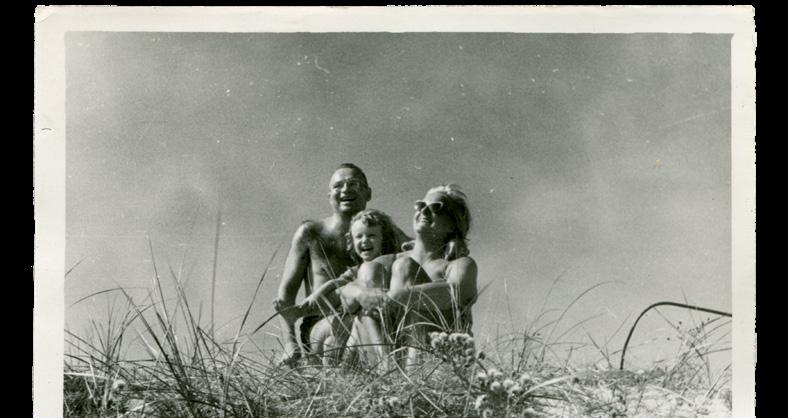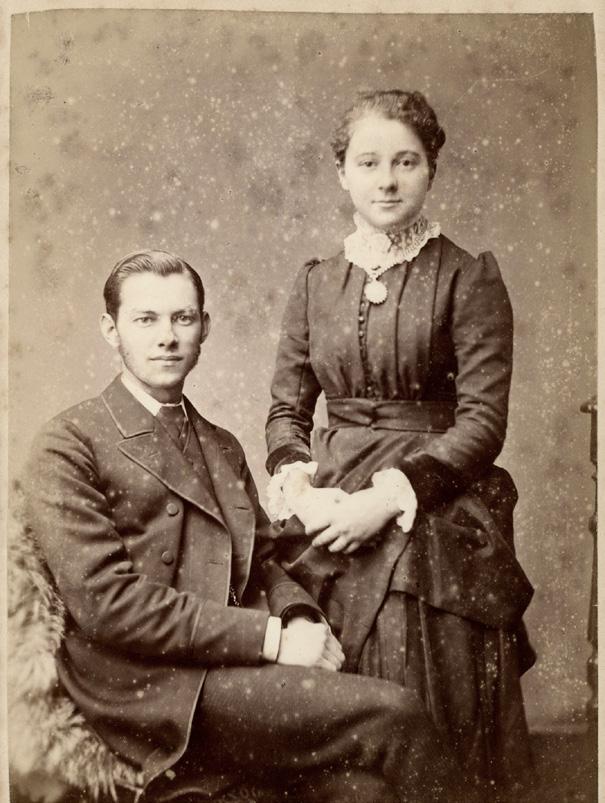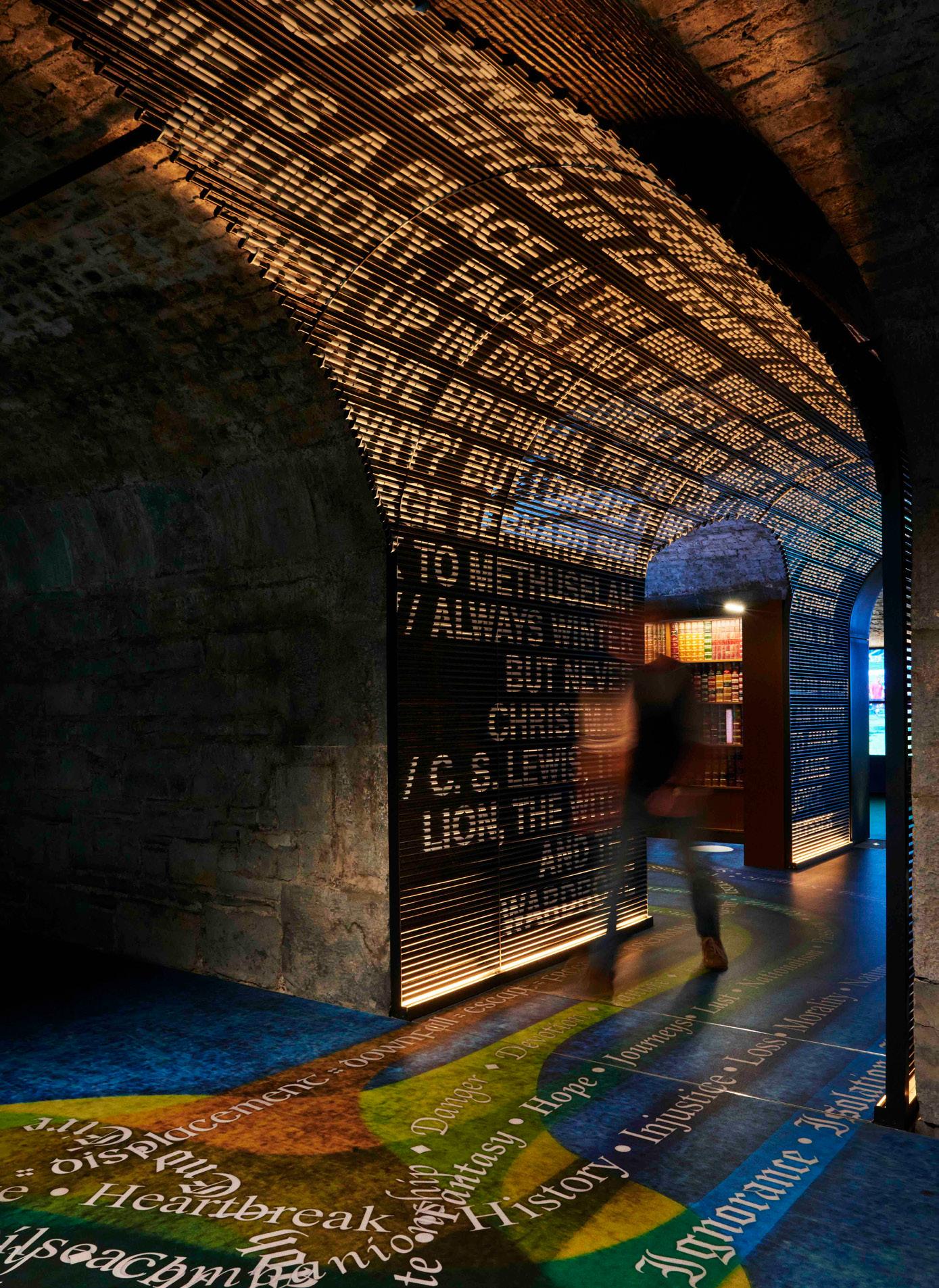
6 minute read
Who Am I?
Who Am I?

Advertisement
Heritage travel is on the rise, with many North Americans keen to retrace their links to the Old World in countries like Scotland and Ireland. Ancestry tour guide and Scottish history lecturer at Glasgow University, Dr Kirsty McAlister, shares her experiences on bringing visitors closer to their forgotten heritage.

On 16th September 1620, a ship named the Mayflower set sail from Plymouth to Massachu setts. The passengers, later known as the Pilgrims, arrived in the harsh winter of 1620, creating a profound effect on the future of the United States of America. Today, 30-million people in the US can retrace their heritage to the 102 passengers and 30 crew onboard the ship. With 2020 marking the 400th anniversary of the Mayflower’s voyage, many North Americans will be commemorating their shared heritage, while many more will become curious about their own family tree.
The desire to track back our genealogical heritage is nothing new. People have long had an interest in looking back to their early relatives through family trees. However, a recent boom in companies offering DNA and genetic testing - combined with access to more online records than we’ve ever had - makes it simpler than ever to discover the rich tapestry of stories and people from your hidden past. As Kirsty notes, “It’s never been easier to access information remotely, you really don’t need to be in the country to get an in-depth understanding of your ancestry.”
The chance to visit the ancient home of your relatives is particularly popular among American and Canadian tourists. Recent research has shown that 23% of long-haul visitors to Scotland travelled to the country to hunt down their Scottish heritage. Similarly, Ireland is a destination that attracts a lot of interest from the estimated 33 million Americans with Irish ancestry.

The first step to discovering your heritage is always research. “There are a huge number of websites that offer DNA testing, giving you a general understanding of where your family’s roots lie.” Kirsty points out.
“From here, you can delve even deeper using government-operated databases. These track national records from church registers, birth certificates, land property rights and migration records. Websites like scotlandspeople.gov.uk even give you access to records used by professional genealogists.”
For some, discovering the names and locations of their ancestors is enough. However, an ever-increasing number want to experience these places in person, to breathe in the same air and walk the same ground as their forebears. Almost all of the tours run by Kirsty start at this point, “Many of my clients will know their ancestry already, what I do is provide those lightbulb moments that snap the story into historical context.”
“What side of the war did their family fight on in the Jacobite rebellions between 1688 and 1746? Which locations did they live in? What was happening at the time they were living? It’s these details that really bring to life the names on the page.” Ancestry tours can take visitors on a visceral, emotive journey back in time to the lands and places associated with their family’s names. Property deeds are an effective way to trace back sites related to a particular name. Who knows, you may even be related to an ancestor tied to one of Scotland’s iconic castles.

Could this be the home of your ancestors? Castle Stalker, Scotland
In fact, one of Kirsty’s favourite moments guiding tours came after a sur prise revelation. “We were overlooking the dramatic cliff-top Dunnottar Castle in the northeastern coast of Scotland, discussing its ancestral owners, Clan Keith. Suddenly the client had a moment of realisation. He consulted his research and discovered he was a direct descendent of the fortress’ owners. It was a beautiful merging of two sides of the story and in celebration we toasted his new found relatives with a hip flask of whisky.”
“It’s moments like these that you realise this is so much more than just a holiday to these individuals.”

Of course, discovering your heritage doesn’t have to be the only thing you do on your trip. After all, the sweeping landscapes and weather-beaten castles of Scotland and Ireland are unlike anywhere else in the world. Because of this, tours can be personalised to include all the highlights of your chosen destination, as well as allowing time for more off-the-beaten-track experiences.
“Every trip is different, as every person will have different needs. What we always make sure to do is as well as the iconic sights we take our clients to the lesser-visited areas that you can’t read about in the guidebooks. For example: storytelling evenings with local historians, opportunities to meet craftspeople and dine in local restaurants away from the crowds.”
Another great incentive to make the journey to your ancestral homeland is that once you’ve arrived, you can delve into local museums or develop your research with access to local archives. In Dublin’s dockyards, the interactive epic The Irish Emigration Museum tells the story of the 10-million Irish emigrants and the influence they collectively made on the rest of the world. Within the museum complex, you can also visit the Irish Family History Centre, which offers consultations with genealogy experts and interactive displays to uncover your Irish roots. The facility notably aided us Vice President Joe Biden to discover his Irish family history on a recent visit.

Discover your connection to the Emerald Isle at the Epic The Irish Emigration Museum
Meanwhile, those with a clan kilt attached to their name can experience what life was like for Highland people at the open-air Highland Folk Museum near Inverness. The authentic, handbuilt site gives a true flavour of local life from the 1700s onwards. Thankfully, even those short on time in Scotland can deepen their research by visiting the National Records of Scotland in Edinburgh. Here a plethora of information awaits, from coats of arms to census records or even local maps and plans . “While information is accessible, those who are short on time can opt to work with a professional genealogist – this is a great way to get insight into your back ground with a minimum of effort. Which is something we can arrange prior to your trip.” Kirsty explains.
Whatever you think you know about your heritage, even the most detailed researcher can still be surprised by what they can find. As Kirsty shares “I’ve traced my family all the way back to the 17th century. Though we were almost exclusively working class, I was shocked to discover a distant relative named Felix was registered in the census as a violinist. A very rare occupation for someone of that era.” For those curious enough, Kirsty shares the emotional impact that heritage tours can provide, “One of the biggest reasons I love what I do is that heart-warming moment when someone feels that personal connection to their ancestors’ story. A validation that connects them to the destination forever.”
Pack your bags Travel to the home of your ancestors and rediscover your heritage. For further info, contact: London: hanna@jacadatravel.com






